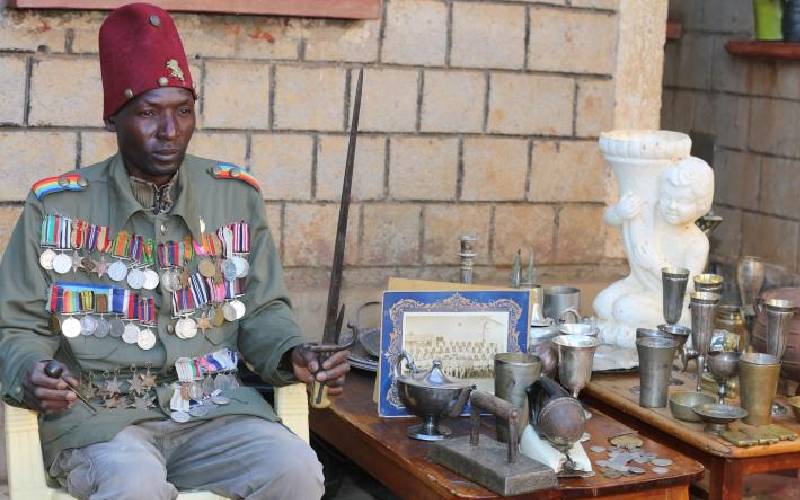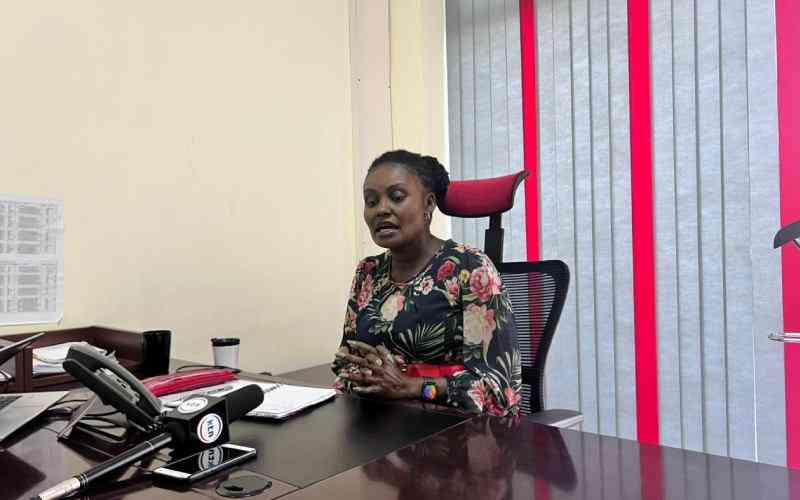×
The Standard e-Paper
Fearless, Trusted News

Amos Rading Malui 41, displays some of the trophies and other items at Langas Kisumu Ndogo in Eldoret Uasin Gishu County. [Peter Ochieng, Standard]
Charles Malui died in 1958, 39 years after fighting for Britain and allies during World War 1. Now two of his great-grandsons are keeping numerous historical artefacts in his honour.







